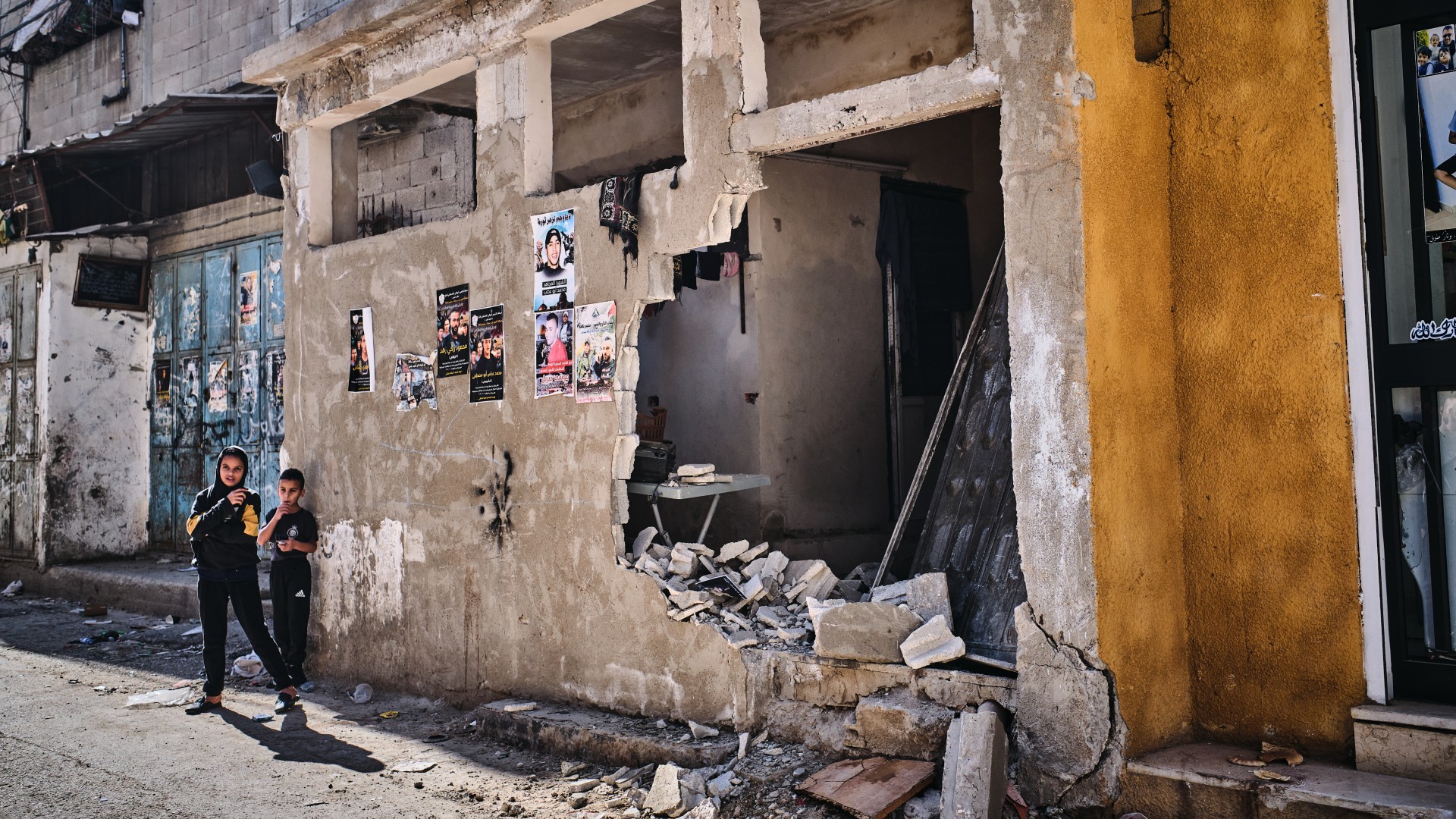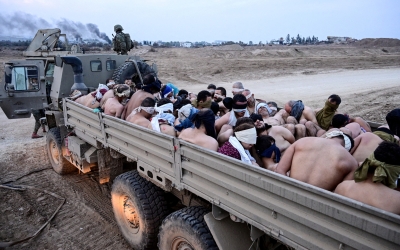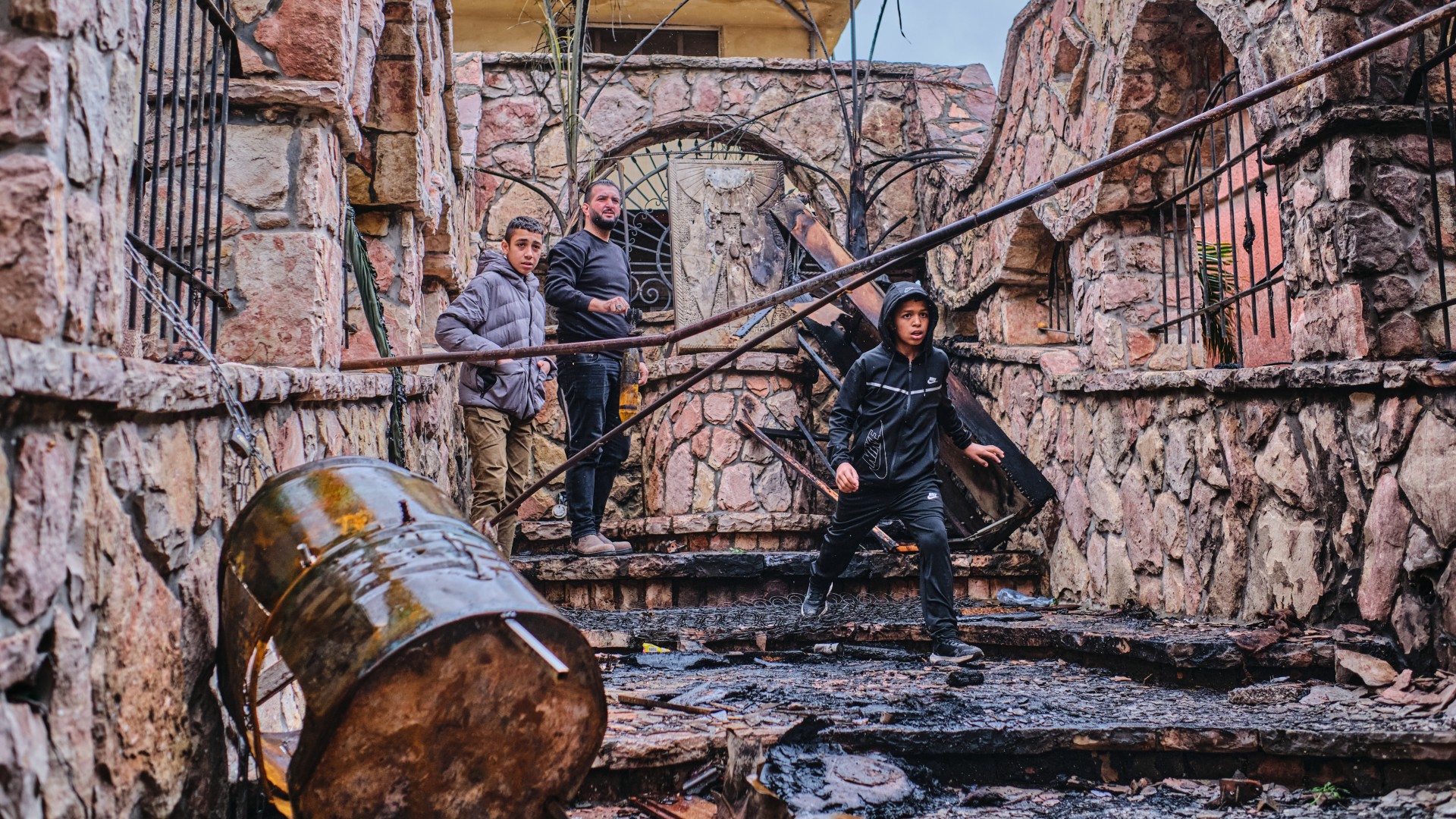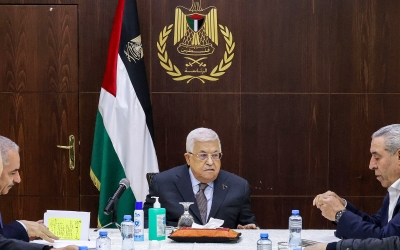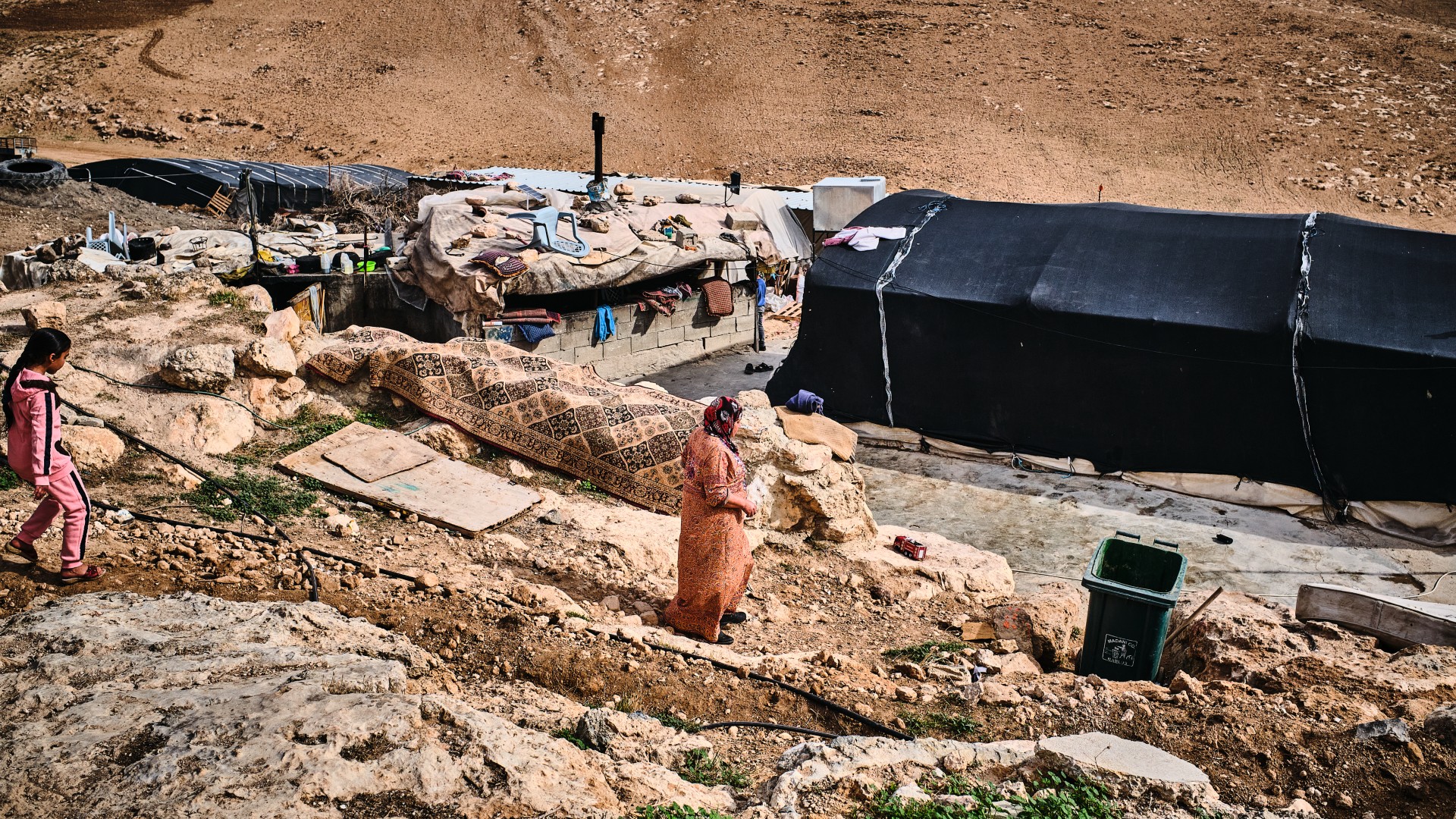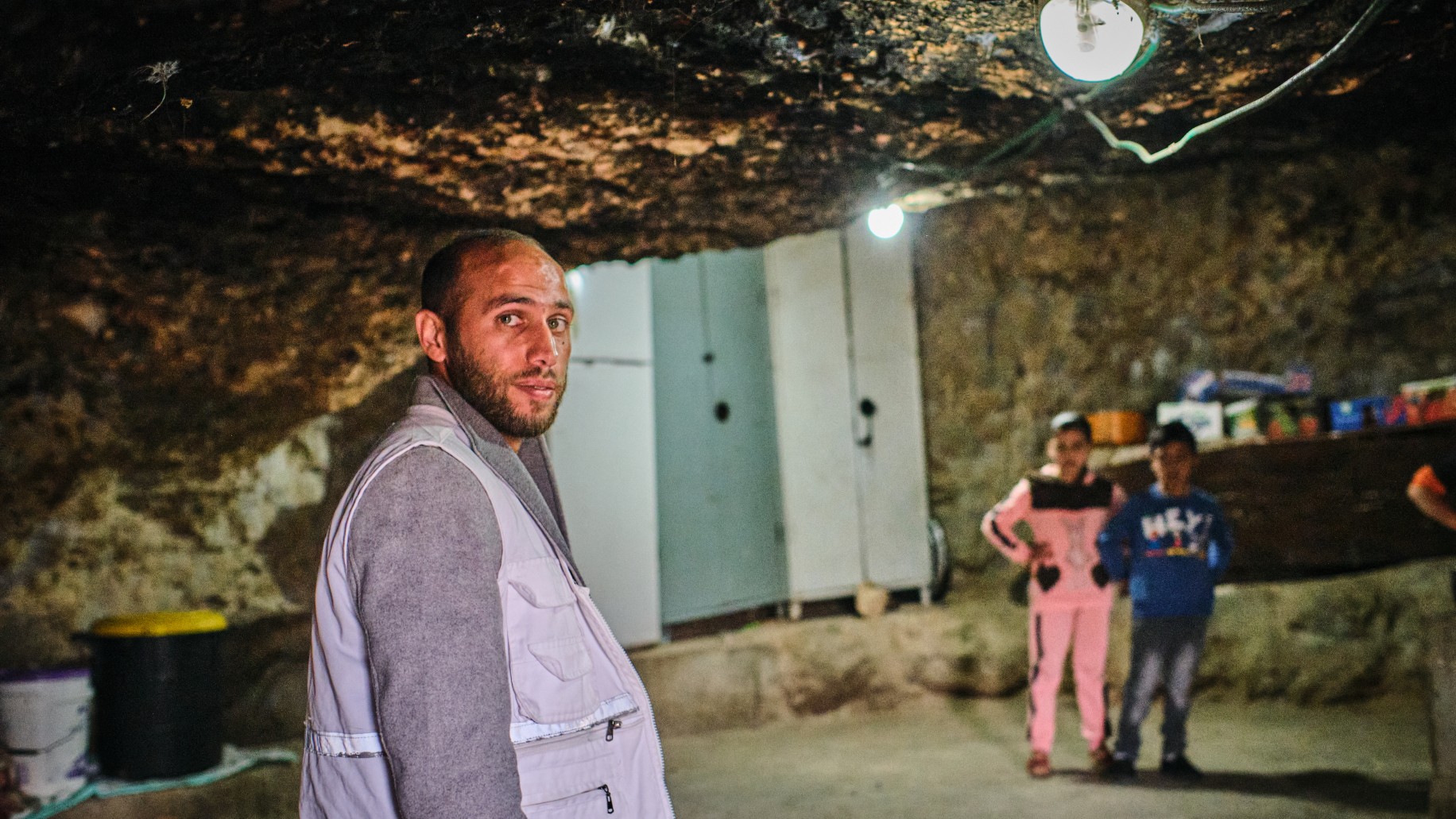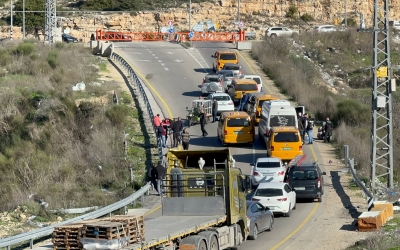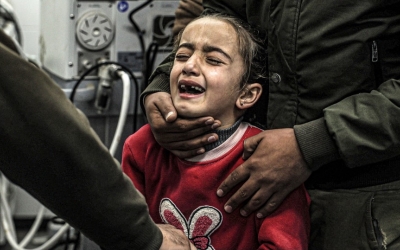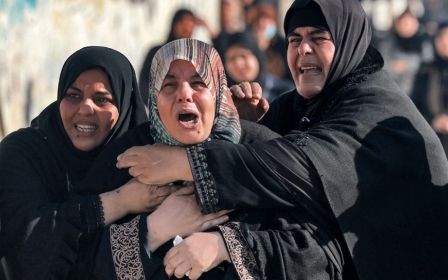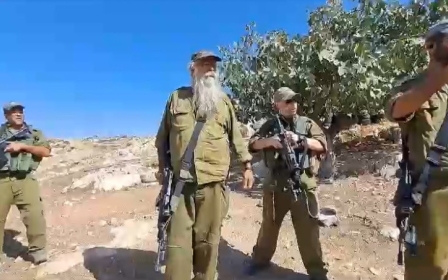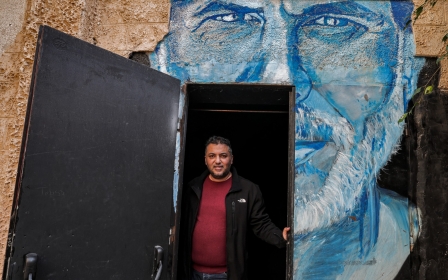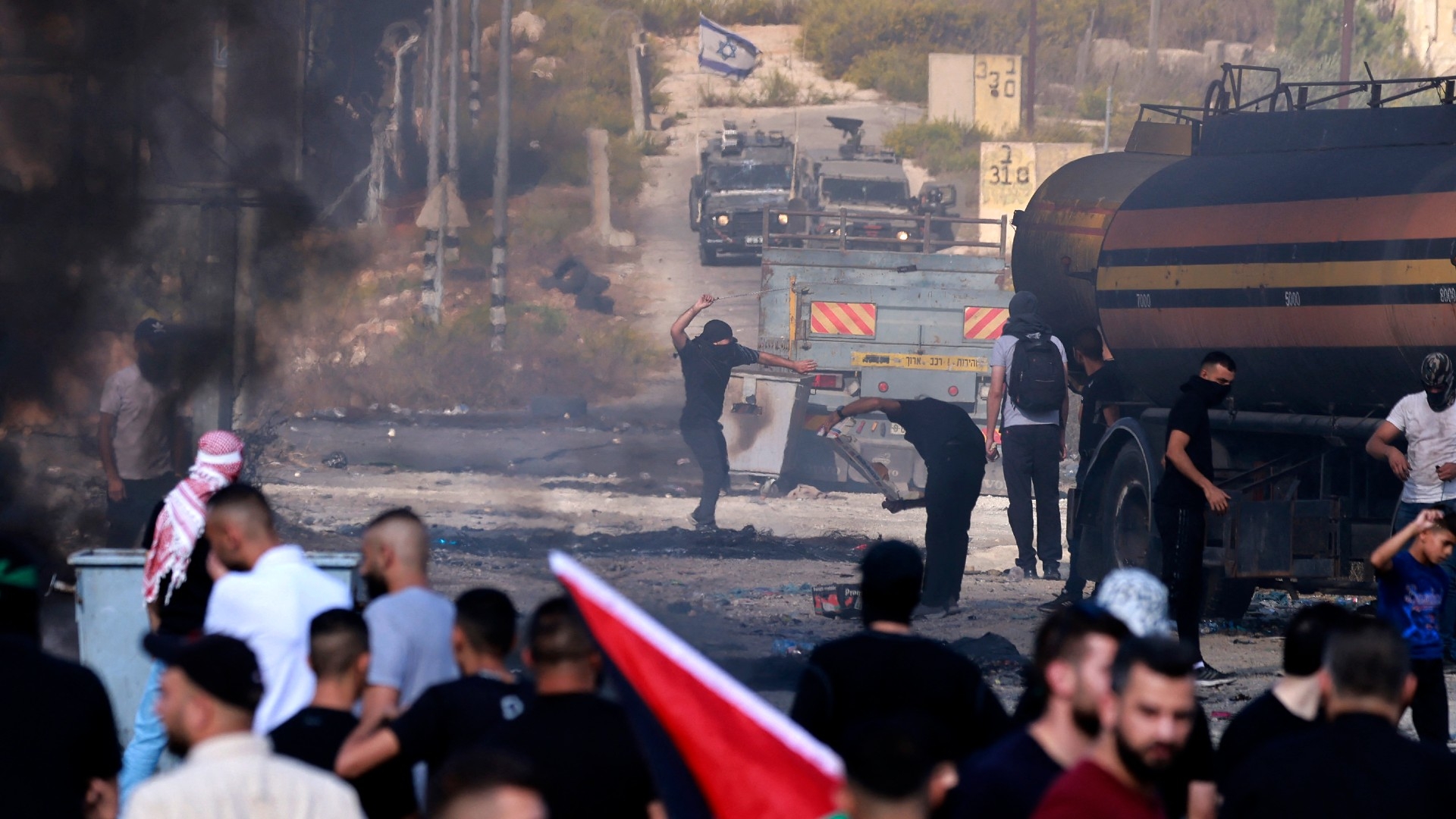
With all eyes on Gaza, Israeli settlers are waging a second Nakba in the West Bank
Few cities in the world are as beautiful as Nablus, endearingly referred to as the "uncrowned queen" of Palestine.
Founded by the Emperor Vespasian, two years after he destroyed the temple in Jerusalem in 70CE, this ancient Palestinian city of rolling hills and sandstone is filled with rich stories of antiquity.
In the evenings, as the sun begins to dip and shadows lengthen, it is easy to imagine legionnaires once walking these maze-like streets. The Roman canal still flows under the city, passing close to the amphitheatre.
For most of its history, Nablus, which lay on the trade route between Damascus, Jerusalem and Cairo, was a principal centre of trade and manufacture. The Palestinian stock exchange was based here.
Today, however, its fortunes have drastically changed.
New MEE newsletter: Jerusalem Dispatch
Sign up to get the latest insights and analysis on Israel-Palestine, alongside Turkey Unpacked and other MEE newsletters
Today, it's a city under siege.
Surrounded on all sides by illegal Israeli settlements and military bases, the roads leading to and from Nablus conceal a scandal about which the international community has remained largely silent.
The road south to Ramallah runs through Huwwara, an occupied Palestinian village that for years, well before the 7 October attacks, was blighted by settler violence.
In February last year, settlers tore through this village, torching cars, setting farmland on fire and vandalising homes, in an act that was roundly condemned as a pogrom.
Since then, the situation for many Palestinians here hasn't changed for the better.
For Palestinians attempting to journey in and out of Nablus, many have to take detours to avoid encounters with Israeli soldiers. More seriously, there's the risk of running into armed Israeli settlers.
Since the 7 October attack, the settlers, who in recent years have received hundreds of millions of dollars in state funding, have carried out more than 200 attacks on Palestinians, according to B'Tselem and Yesh Din, two human rights groups documenting attacks in the West Bank.
In the same period, Israeli forces have killed more than 200 people, more than 25 percent of whom are children, according to the United Nations.
Since the Oslo Accords were signed in 1993 with the goal of establishing a Palestinian state in the occupied West Bank and Gaza, the number of Israeli settlers in the West Bank has grown from about 260,000 to nearly 700,000, according to figures from the Israeli pressure group Peace Now.
Settlements are considered illegal under international law, but successive Israeli governments have continued to expand them in violation of international law and the Oslo Accords.
Palestinians across the West Bank fear that the increase in settlements and outposts threaten not only the viability of their future state but also their livelihoods.
In November, the surge in settler attacks forced many Palestinians to cancel their olive harvest, traditionally a joyful time when families go out into the hills to pick the fruit from gnarled, ancient olive groves.
For years, the settlers have descended from their hilltop fortresses and come to destroy the prized olive trees, either burning or hacking them down or poisoning them with chemicals.
Amid the war on Gaza, many have become more brazen in their assaults.
We learnt how farmers have been sprayed with machine-gun fire to force them off their land so the settlers could harvest the olive trees themselves.
Such attacks have proven to be a death knell for the rural economy, which has depended on agriculture for centuries.
'They want to scare us, humiliate us'
Families across the West Bank, already haunted by previous displacement, told Middle East Eye that they feared that such crimes, which Israel's judicial system fails to investigate properly, could usher in another period of forcible dispossession.
In Balata, one of the most densely populated refugee camps in Palestine, many told MEE that following the 7 October attack they feared a repeat of the Nakba, or "catastrophe" as it is known in English, when, at the time of the establishment of Israel, more than 700,000 Palestinians were driven from their homes by Zionist forces, never to return.
The signs of the destruction caused by constant Israeli military raids are clear to see.
"Last night we were bombarded by an [Israeli] aircraft. Then the drones, snipers and bulldozers also came," a Palestinian man, who requested anonymity, told MEE.
At the site of the raid, the winter rains and mud made the scene appear all the more apocalyptic.
'[Israeli soldiers] kicked him [my brother] so many times in the face that he lost consciousness. Despite this, one soldier ordered him to lick the blood off his boot'
- Adhan, Balata resident
Among the still smouldering ruins were the remains of a grenade and an unexploded rocket.
Another Palestinian man lamented what remained of his bedroom: a heap of rubble with the exterior walls riddled with bullets.
Nearby, a group of boys showed MEE what happened to their home. Israeli forces reportedly ransacked the property, leaving toys and clothes scattered everywhere.
"They hammered our wall in. They said they wanted to look for weapons inside, but there is nothing here," one of the boys said.
"They smashed our appliances just to upset us. They also tore up children's books and notebooks. That's what they do. They want to scare us, humiliate us."
At this point another man interjected: "They put us face to the wall with rifles pointed at our heads. They said: 'Are you happy with what you did on 7 October? Have you seen Gaza now? You will be next'."
Beaten for not licking his boot
Several released Palestinians have recounted harrowing stories from when they were detained by Israeli soldiers in Balata.
Anas, a 27-year-old, was kicked in the face during his most recent arrest and was ordered by one Israeli soldier to lick his boots after it was stained with his blood.
We spoke to his family since Anas was still recovering in hospital. They lashed out at Israel's heavy-handed tactics across the West Bank.
Adhan, his younger brother, told MEE that, during the raid on their property, his sister, who was cradling a baby, was also hit and abused by Israeli soldiers.
"We yelled at the soldiers: 'How can you hit a woman with a baby?'," Adhan said.
"So they rounded up all of us men, took us to the street, handcuffed us and put us face down on the ground.
"They started beating us. My brother Anas was the hardest hit. They kicked him so many times in the face that he lost consciousness. Despite this, one soldier ordered him to lick the blood off his boot. But my brother was now unresponsive; he was unconscious. We called for an ambulance, but they blocked it, preventing any help from coming."
All these abuses and humiliations, he said, took place in the presence of children, who were terrified and screaming as they watched on.
One of the children, Ahmad, struggled to hold back his tears as he recounted what happened.
"There were soldiers, they were beating the men hard," he said, as he struggled to finish his sentence.
His mother intervened: "During those moments, they would say things to us women that I can't repeat, horrible insults that hurt a lot. I am not comfortable telling these things publicly. However, I know that it is important for people to know. The world needs to know."
Another man said: "The [Israeli] soldiers know very well what offends Muslim women. The insults they hurl at them are so horrible that no woman will ever repeat them, such is their shame."
All eyes are on Gaza
Walking through the streets of Balata, nearly every TV set was tuned into channels broadcasting the latest news from Gaza.
Many Palestinians in the West Bank have shut their businesses in protest against Israel's relentless bombing of Gaza, where almost all of the enclave's 2.3 million inhabitants have been displaced after three months of war.
In recent weeks, Israel has come under mounting pressure from the global south to end its assault on Gaza, where the death toll has passed 23,000, with about 70 percent of those killed identified as women and children.
But with Israel repeatedly cracking down on acts of solidarity with Gaza, public displays of protest have been sparse.
The atmosphere at the Balata refugee quickly changed within the space of a few minutes, with armed young men thronging one of the main streets warning residents that Israel was planning another raid.
Dozens of people rushed to block the main entrance of the camp so as to slow down the entry of Israeli soldiers, using rocks, boulders, pieces of sheet metal and whatever else they could gather.
In this Israeli raid, at least one Palestinian man was killed.
Where is the Palestinian Authority?
Balata, and other nearby areas of the West Bank, were traditionally Fatah strongholds, but after years of political deadlock and perceived inaction against Israel, the once-dominant party has seen its popularity decline to record lows.
The Hamas-linked Islamic Allegiance Block narrowly defeated the Fatah-affiliated Student Youth Movement in student council elections at An-Najah National University in Nablus last May.
Analysts say that such election results reflect growing anger against the Fatah leadership, led by 88-year-old Palestinian Authority (PA) President Mahmoud Abbas.
Many ordinary Palestinians have declared the organisation useless, compromised and out of touch, and sympathy with Hamas across the West Bank has surged since the 7 October attack.
During recent prisoner exchanges, Hamas flags appeared with increasing frequency. At nearly every protest or march, choruses praising the Palestinian movement could be heard.
"For Palestinians, politics is particularly important. Everyone here, in one way or another, does politics," one man told MEE at the wake of a recently slain fighter.
"I am a member of Fatah; I was born with this party, and I will die with it. However, what Hamas did, for the first time, turned the tables. Many accuse Fatah of not having done much for the Palestinian cause in the past 25 years.
"Some party members have fostered their own interests by making deals with Israel, all on the backs of the Palestinian people. Hamas, on the other hand, has drawn the world's attention to what is happening here. That is why you now often see Hamas flags, and hear chants to them, even by those who were not their supporters."
Those people MEE talked to identified another problem: the PA has proved incapable or unwilling to resist the daily incursions by Israeli forces into Nablus, and has not attempted to protect Palestinian villagers from settler assaults in nearby villages.
With such a pattern repeated across the West Bank, many have begun to question the point of the PA if it cannot defend the Palestinians.
Settlers taking 'advantage of the war'
Unlike urban areas of the West Bank, where Palestinians have strength in numbers to resist settler attacks, remote villages are often at the mercy of rampaging settlers supported by the Israeli army.
Nowhere is this more evident than in the South Hebron Hills.
In the village of Tuwani in Area C, land that falls under full Israeli military and civil control, the villagers are not allowed to possess weapons.
According to the United Nations, in 2023 there were, on average, three incidents of settler violence per day in the West Bank. Since 7 October that has more than doubled to seven per day on average, more than a third of them involving firearms.
Patriarch Hafez Hureini told MEE how armed settlers had imposed a reign of terror and were seizing livestock, wrecking water tanks, smashing solar panels, bulldozing outbuildings and destroying the olive groves.
"They bulldozed all our land with the olives and terraces, destroying everything. We dare not go even 20 metres to our land," said Hureini.
"The settlers are taking advantage of the war [in Gaza] to seize the land. Now they rule everything round here. They block the entrances to our villages. They steal our possessions. They smash our solar panels and bulldoze agricultural buildings, trees and stone walls."
His son Mohammed shows everyone that he can the video footage of settlers in military fatigues invading his property. When asked whether they were serving soldiers with the Israeli army, he said he wasn't sure.
"We have no right to apply the law. We are not safe. Our lives are in real danger."
He said the situation was worse in the most isolated villages, where people have already started to flee the violence.
The settlers are clear about their intentions. They tell the Palestinian villagers: "Go to the city. Go to Yatta [a city south of Hebron]. In 24 hours if we find you here we will kill you," he added.
MEE previously reported that Israeli settlers distributed menacing leaflets and left bloodied dolls at schools, warning Palestinians to either leave or be killed.
Residents of one West Bank village said they were sent warning letters that read: "You wanted war - wait for the great Nakba."
According to information from the West Bank Protection Consortium and the Israeli human rights group Yesh Din, about 545 Palestinians have been forcibly displaced from at least 13 communities in Area C since 7 October.
Bedouins forced to live in caves
Upon reaching the village of Halaweh, a few kilometres from Hebron, several Bedouin families said their plight was being ignored as armed settlers and soldiers erased entire Bedouin villages in the West Bank.
"The [Israeli] soldiers have expropriated a lot of our land," one Bedouin man told MEE.
'Often, settlers shoot at us to prevent us from bringing aid and medical care to the villages'
- Doctor
"As you can see, there are no roads, no more pastures for our animals. This area is [now] used by the military for exercises. They [Israeli soldiers] come, they demolish the tents and buildings we put up. So, we [have now] dug holes in the earth, making caves out of them, and we live there.
"That way, at least they can't demolish our homes."
The violence has forced entire communities from their land, with nearly 1,000 Palestinians from at least 15 herding communities having to flee their homes.
A team of doctors bringing medicine to the most rural areas lamented the dire situation here and the Israeli government's endorsements of the settler groups.
"We are moving around today, on Saturday, because it is Shabbat, the situation should be calmer because they [Israelis] are busy praying," a doctor told MEE.
"Often, settlers shoot at us to prevent us from bringing aid and medical care to the villages. Sometimes the soldiers do that too. They close the roads with mobile checkpoints, so we must turn back, leaving many families without medical care," he added.
Data from Yesh-Din has shown that between 2005 to 2022 at least 93 percent of all investigations into ideologically motivated crime in the West Bank were closed without an indictment.
MEE reached out to the Israeli army for comment but did not receive a response by time of publication.
A 'ghost town'
Nearby Hebron is one of the most populated cities in the West Bank, but tensions between Israeli settlers and Palestinian locals have soared since the 7 October attacks.
Some 32km from occupied East Jerusalem, Hebron was divided into two in 1997, with "H1" placed under the complete administrative and security control of the Palestinian Authority and "H2" administratively run by the PA but controlled by the Israeli military, which has the final say on who enters and exits the area.
The historic Old City of Hebron was once home to one of the most beautiful markets in the entire Middle East.
Today, it has the appearance of a ghost town.
Intensely monitored by Israeli forces and police, surveillance cameras are mounted every 90m in H2, the area administered by the PA.
Israeli soldiers and armed settlers now patrol the area in military uniforms, with the streets mostly empty of the area's 35,000 Palestinian residents.
The situation has become so dire that many dare not venture out of their homes, with the restrictions making it difficult for Muslims to be able to pray in their own mosque, the Masjid-E-Khalil.
Israeli soldiers have built a gate with a metal detector manned by armed guards. When we arrive, they ask our religion; entry is only allowed at their discretion.
Fawaz is one of the few remaining vendors in the Old City. We ask him how he feels today seeing Hebron reduced to this state.
"You see it with your own eyes. Even though we put up protection, they keep throwing everything at us from the windows: stones, bottles, garbage, and sometimes even excrement. The situation had become intolerable. There are very few of us left who still have a store open," he told MEE.
"Today, though, everything is less important than what is happening in Gaza. Everything that happens here is nothing compared to the massacre that our people are suffering in Gaza."
The director of a social policy organisation in Nablus echoed this point. "We cannot shout about not being able to eat when people are being massacred in Gaza," he said.
When the war ends
For many Palestinians in the West Bank, there is a strong belief that, after the war in Gaza ends, the Israeli government will likely come after them next.
Israeli leaders and politicians, just like the settlers, have repeatedly warned of a "second Nakba" and their ambition to drive Palestinians from their ancestral homes.
Such rhetoric has become normalised, with a growing number of Israelis now calling for the "Gazafication" of the West Bank. Such a scenario would see Israel raze and occupy more Palestinian lands in Area C.
For many, the situation in the West Bank echoes the scheme laid out by Israel's current finance minister, Bezalel Smotrich.
About seven years ago, when he was a young and largely unknown member of the knesset, Smotrich published a paper rejecting the two-state solution and proposing "full Israeli sovereignty to the heartland regions of Judea and Samaria" along with the establishment of "new cities and settlements deep inside the territory and bringing hundreds of thousands of additional settlements to live therein".
Smotrich's so-called "Decisive Plan" concluded that "victory by settlement will imprint the understanding upon the consciousness of the Arabs and the world that an Arab state will never arise in this land".
At the time of publication of the "Decisive Plan", Smotrich was easy to dismiss as an extremist. Today he serves as leader of the Religious Zionist party and as finance minister in Prime Minister Benjamin Netanyahu's government.
As part of the coalition agreement, he also secured the post of head of civil administration across the West Bank. He now serves in a position to put his longstanding vision into practice. The civil administration that Smotrich runs gives him total control of almost every aspect of Palestinian lives.
"Those who wish to forgo their national aspirations can stay here and live as individuals in the Jewish State," the Decisive Plan states. They would not, however, have the right to vote.
Meanwhile, those "who choose not to let go of their national ambitions" will "receive aid to emigrate". Those who accept neither of these alternatives but choose to take up arms against Israel will be hunted down and killed as terrorists.
This vision explicitly rules out the idea of a Palestinian identity let alone a state, a position that also forms the core element of the stated policy of Netanyahu's government.
While the International Court of Justice holds hearings on a case brought by South Africa alleging that Israel's military campaign in Gaza amounts to genocide, many in the West Bank have accepted the judgement won't end Israel's 75-year occupation anytime soon.
"Things are scarier than ever," one young woman told MEE.
For her, and countless others in the West Bank, the Palestinians will continue to be exhausted by death and despair as the world watches on.
Middle East Eye delivers independent and unrivalled coverage and analysis of the Middle East, North Africa and beyond. To learn more about republishing this content and the associated fees, please fill out this form. More about MEE can be found here.


